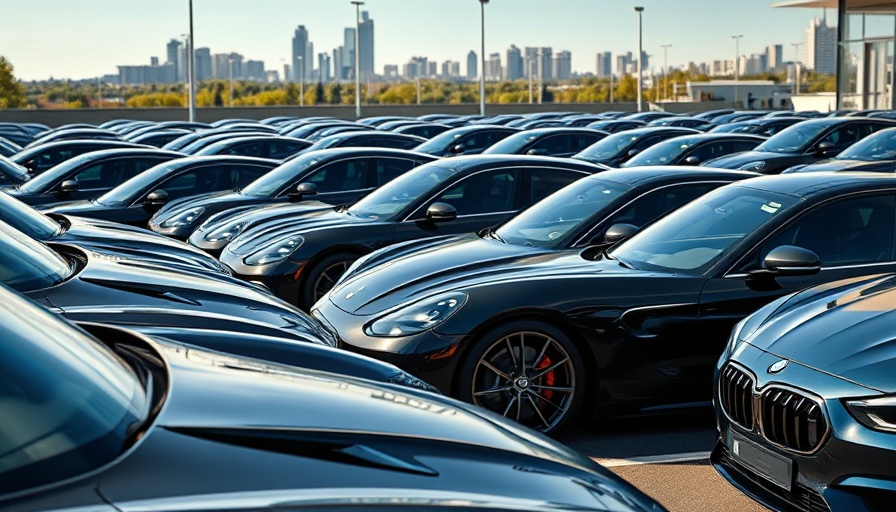
Shifting Gears: The South African Premium Car Market
In South Africa, the once-thriving premium car market is reaching a pivotal moment as established brands like Audi, BMW, and Mercedes-Benz grapple with declining sales while facing aggressive competition from an influx of Chinese manufacturers. The landscape that was dominated by a few key players is rapidly evolving, presenting unique challenges and opportunities for exporters, importers, and e-commerce businesses in the region.
A Changing Landscape: The Rise of Chinese Brands
Over the past decade, sales for premium brands have plummeted by as much as 70%, prompting some manufacturers to reassess their presence in the market. Audi South Africa recently announced a reduction in its dealership network from 31 to 20 by 2030. Despite these setbacks, the brand has managed to maintain an 18% market share, trailing only BMW.
In stark contrast, Chinese brands are entering the market with significantly lower pricing and cutting-edge technology. As of March 2025, there are already 13 different Chinese brands in South Africa, with plans for additional entrants. The competitive pricing and attractive features of these vehicles appeal to an evolving consumer base looking for value and innovation.
Strategic Realignments: A Future Focused on Sustainability
As the competition intensifies, premium brands like Volvo are reacting more dramatically by downsizing their dealership networks from 19 to just 7 locations. This strategy aligns with sustainability goals and seeks to reposition the brand within a swifter business model that can adapt to consumer preferences.
According to automotive leaders, declining sales and changing consumer behaviors necessitate profound adjustments. Audi's decision to pivot its marketing efforts toward enhancing customer experiences illustrates the dual challenge of maintaining brand loyalty while adapting to new market realities.
Implications for Trade and Commerce
For exporters and importers, these shifts in the automotive sector offer rich insights into broader market trends under the African Continental Free Trade Area (AfCFTA). As Chinese brands increase their market share, local businesses need to stay agile and responsive to these changes. By leveraging e-commerce and digital economy strategies, stakeholders can better position themselves for success in a changing landscape.
The transformation of South Africa's premium car industry underscores the importance of adapting to consumer needs and fostering innovation. This dynamic environment presents opportunities for growth, especially for those involved in cross-border trade initiatives.
As South Africa's premium vehicle market continues to evolve, staying informed and engaged with these trends will be critical for anyone involved in trade and commerce. Understanding these dynamics can lead to smarter business moves that cater to the shifting preferences of South African consumers.
Stay tuned for more insights on navigating the complexities of trade in the modern economy!
 Add Row
Add Row  Add
Add 




Write A Comment